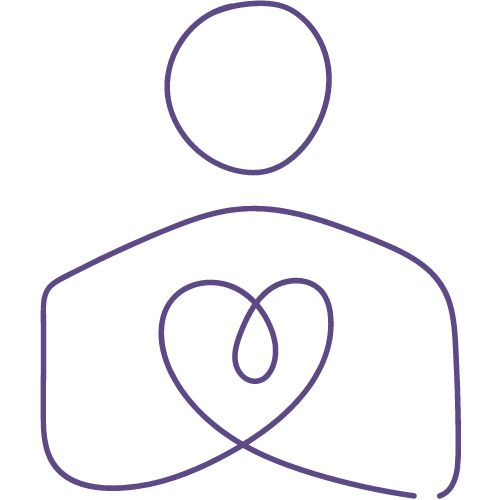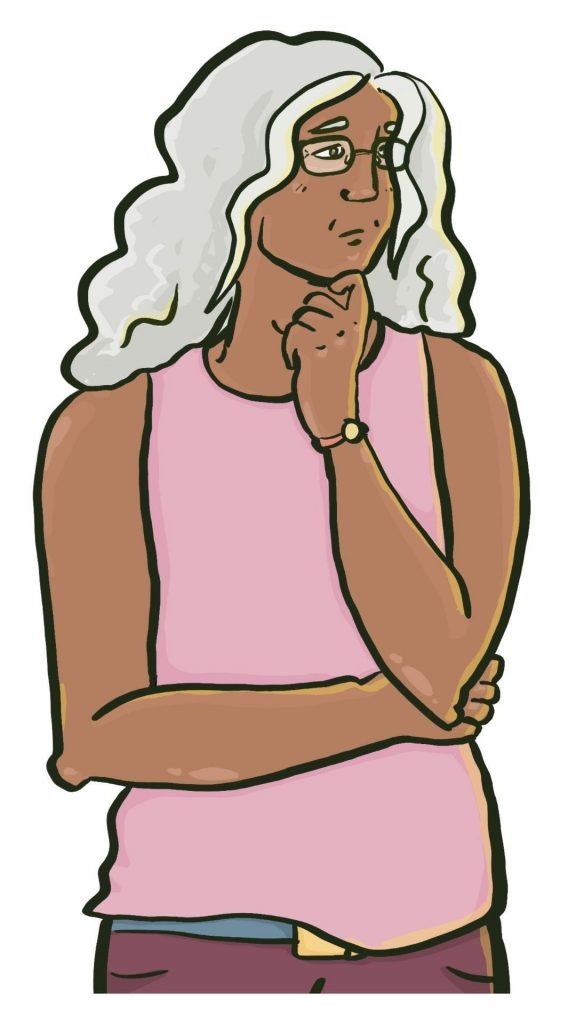What is the ADEPT-2 Carer Study?
If a participant has a carer, with their consent, we would like to invite them to take part in a separate study. This will explore how the treatment of low mood/depression for autistic adults affects them as a carer.
It is up to the ADEPT participant to define who their carer is but, where possible, it would be someone who knows them well and is likely to be providing them with support throughout their involvement with this study. This might be a family member, partner, or professional support worker.

ADEPT participants are still able to take part in ADEPT-2 if their carers do not wish to take part, or if they do not have a carer. Similarly, if their carers do agree to take part, they can remain in the study if the ADEPT participants decide to withdraw.
Summary of important things to know about the ADEPT-2 carer study:
- We are inviting carers of the participants who are involved in ADEPT-2, a study of adults with autism who experience low mood/depression, to take part in a carer sub-study.
- We want to explore how the support provided for low mood/depression in these autistic adults affects their carers.
- Carers will be contacted by trained study staff via video call, telephone, text, or email (whichever you prefer) and asked to complete a Carer Impact Questionnaire at the start of the study and then at 16 weeks and 52 weeks after they join the study.
- The questionnaires will ask carers about how their caring responsibilities for someone with autism and low mood/depression are affected by the treatment they receive. We will also ask about their health and wellbeing.
- To thank carers for their involvement in the study, we will offer them a £10 gift voucher upon completion of the final week 52 questionnaire.
- By taking part in this study, carers will be helping to inform whether autistic adults who experience low mood/depression should receive Guided Self Help as a talking therapy.
Why are we doing this study?
Depression is a common mental health problem that affects many people, including autistic people.
Guided Self-Help (GSH) for low mood/depression is a psychological intervention based on the principles of Cognitive Behaviour Therapy (CBT). Guided Self-Help means that someone is provided with written materials and sessions with a therapist to ‘guide’ their use of those materials. We have developed written materials especially for autistic people and their therapist guide.
Results from our previous study showed that autistic people and therapist guides found the materials acceptable. We would now like to find out how effective these materials are and how useful people find them compared to the support that is usually available. We would also like to find out whether GSH represents good value for money for clinical services.
We would also like to invite carers of autistic adults who wish to take part, to join the study. This is so we can understand how the support provided for autistic adults experiencing low mood/depression affects their carers.
If I decide to take part, what happens next?
If you are interested in taking part, or if you would like more information, you can contact a researcher directly by emailing: awp.adept2rctsecure@nhs.net. If you prefer, you can simply state ‘YES CARER’ in the email and the research team will follow up with you about the study. They will be happy to answer questions and will let you know how you can take part.
If you are interested in taking part, you will need to:
- Complete the paper consent form and study questionnaire provided with the study invitation pack.
- Complete the first study questionnaire.
- Return the completed consent form and questionnaire using the pre-paid envelope provided.
Once you complete the consent form and return it to us using the pre-paid envelope provided, you will be enrolled in the study. If you would prefer to complete this process in person or you would like to speak with the research team, we can arrange this for you. It might be that this is done virtually or by a method of your choice.
You will be asked to complete questionnaires at the start of the study and again at 16 and 52 weeks. The 16 and 52 week questionnaires can be completed online, via post (a pre-paid envelope will be provided) or with a researcher over video call or the phone. If you require assistance to complete the questionnaires, the research team will try their best to make all reasonable adjustments to help with this. Similarly, a family member or friend can provide support, but they will be advised not to answer any questions on your behalf.
Upon returning the completed 52-week questionnaire, and to thank you for your involvement in the study, you will receive a £10 gift voucher.
Who is considered a carer?
It is up to the ADEPT participant to define who their carer is; where feasible, it would be one carer who knows them well and is likely to continue caring for them over the 52-week trial period. A carer will be an individual who provides emotional/practical/informational support to the ADEPT participant either informally or formally.
I’m a carer for a person taking part in the ADEPT-2 trial and I’m interested in the ADEPT-2 Carer Study.

If you are a carer for a person taking part in the ADEPT-2 study, and you have received an invitation to take part in this study, please read the Carer Participant Information Leaflet carefully.
If you are a carer of a person with a diagnosis of autism who experiences low mood/depression, and you think they may be interested in taking part, please show them the Information for Participants page.
If you have any questions or would like further information, please email: awp.adept2rctsecure@nhs.net.
The Central Research Team is based at the University of Bristol. For general enquires you can contact us by email: adept-rct@bristol.ac.uk.
If you are interested in taking part and would like to receive more information, please visit the Take Part Page, or contact us by email: awp.adept2rctsecure@nhs.net.
